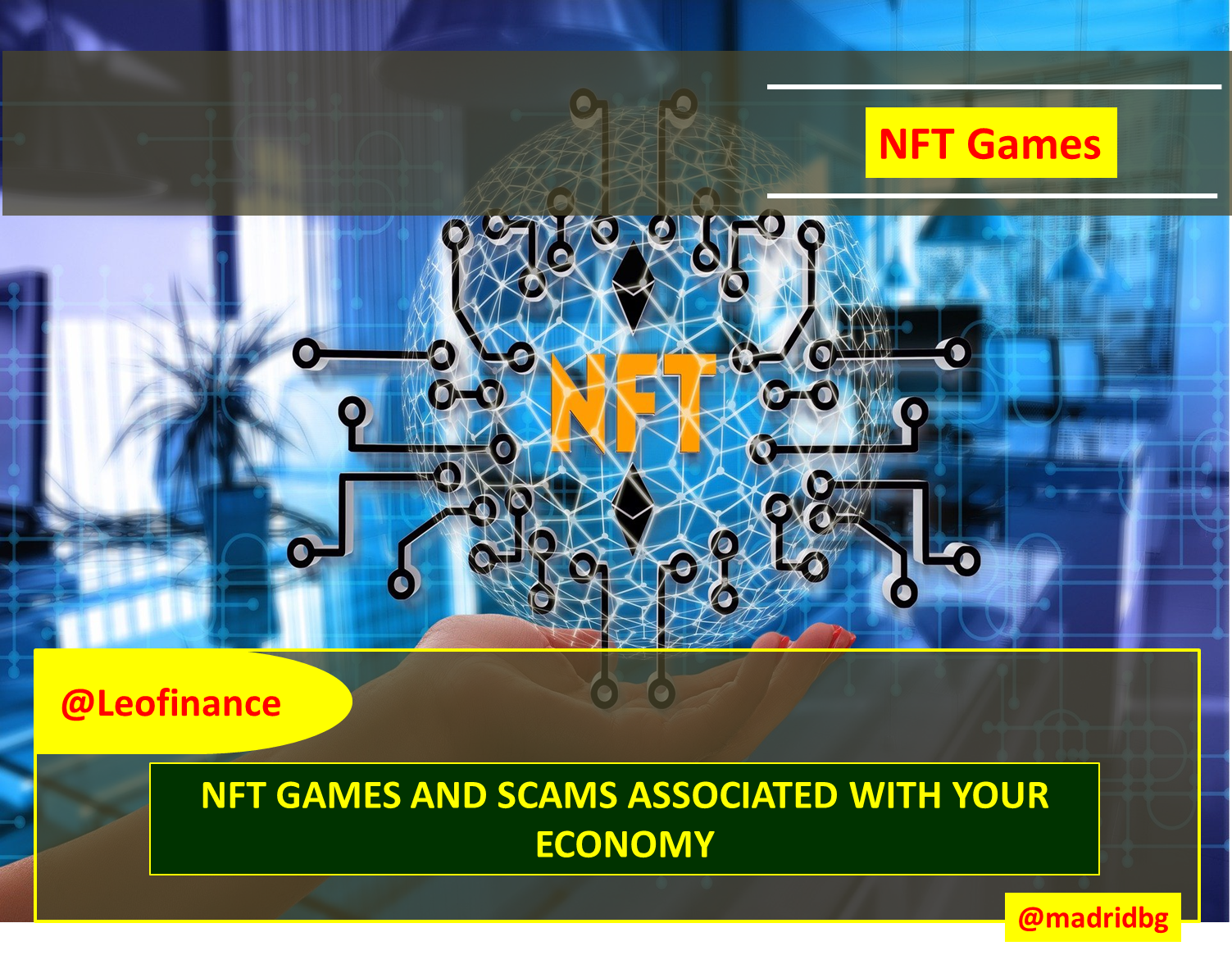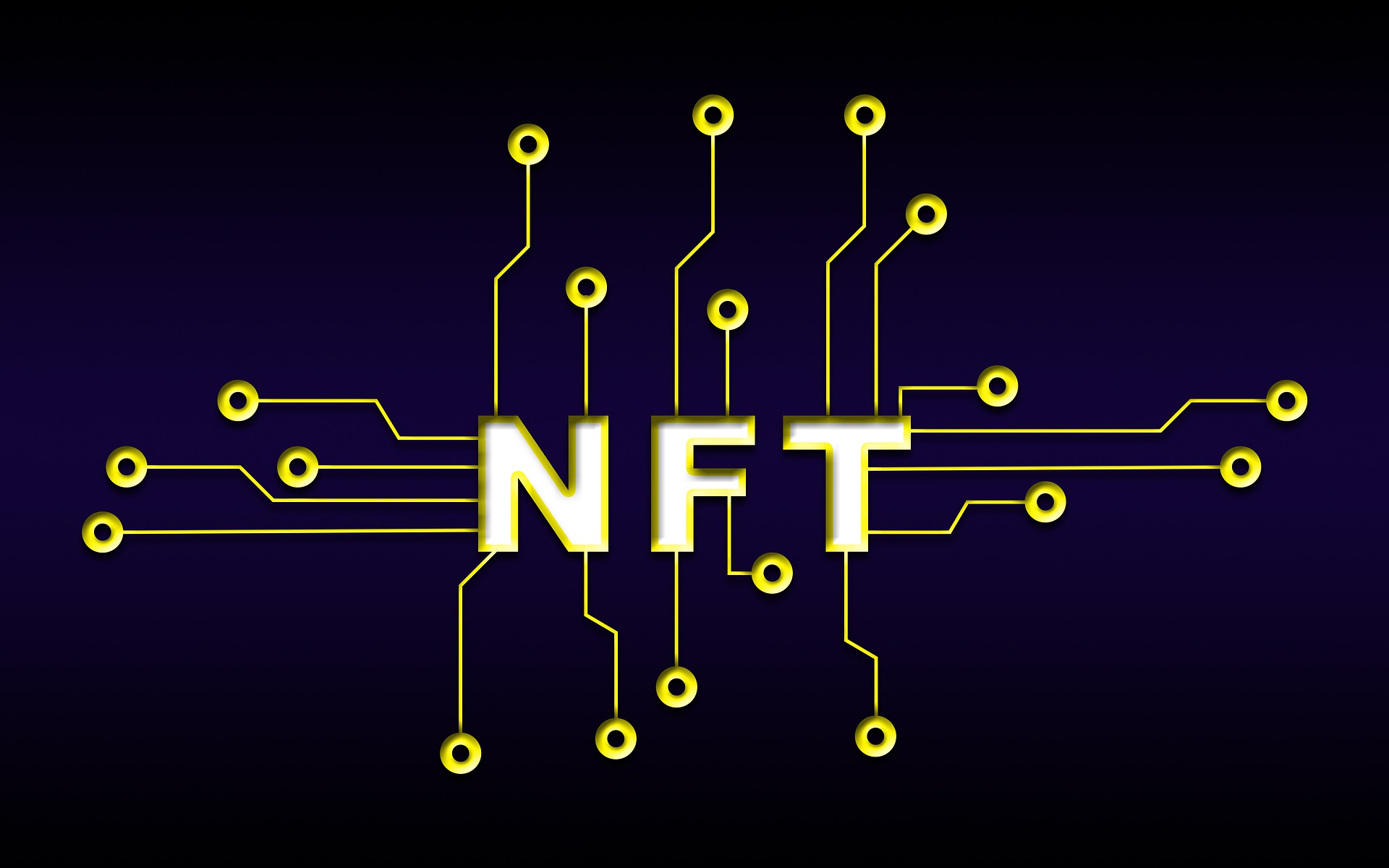NFT GAMES AND SCAMS ASSOCIATED WITH YOUR ECONOMY
(Edited)

Author: @madridbg, through Power Point 2010, using public domain images. Gerd Altmann
Greetings dear readers and users who accompany me daily in this space for disclosure and reading, the topic that we will mention throughout these lines of writing, is related to the economy of NFT games and the frauds that are carried out through this.
In this sense, it is no secret to anyone that the world of non-fungible tokens (NFT) has been in constant growth, achieving a boom of more than 300% by the year 2020, growth that is associated by the economic diversities offered by this type of project and that seek to support different tastes, among which the development of works of art based on digital assets, sports games, bets, among others.

Although this type of technology dates back to mid-2012, its momentum begins to develop from 2019, having its maximum momentum in 2020 and since then some video games based on blockchain technology move large amounts of money in the world economy, which allows us to infer that growth will be projected over time with the current advances in the world of metaverses, which is why every day more people are betting on the digital world and investment opportunities that this offers.

Author: Pete Linforth, Pixabay
Based on the above, it is not surprising that every day the wallets or wallets where assets are shared or stored suffer security threats since the growth of NFT games is directly proportional to the number of Cyber scams that seek to destabilize the income of users who make a living on blockchain technology.

Consequently, keeping wallets secure has been a difficult task for investors who have had to learn to filter cyber-attacks associated with the use of malware, phishing or deceptive links to seize the security system of the wallets and consequently of the resources that it has.
An example of the above, which occurred in 2020, where after the death of Qing Han, his works were cloned and sold for amounts exceeding 300 thousand dollars, in the same way they are known scam techniques such as sleepminting, which consists of minting NFTs in an artist's account, extracting the original and leaving the copy undetected, which allows them to sell the original works through fraudulent markets.

Other scenarios that digital criminals are currently exploiting are direct links through the Discord platform where users are deceived through false portals that lead them to place their passwords involuntarily, keys that will remain in the position of the fraudsters and consequently they will be able to extract the available assets.
Without a doubt, cybercrime seems to be improving its tactics, which is why we must be vigilant and improve the security systems of our assets.
OF INTEREST


Posted Using LeoFinance Beta
0
0
0.000
0 comments